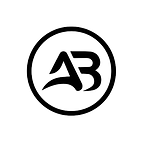Python Programming for Beginners: A Practical Guide to Understanding Basic Concepts
Learn the fundamentals of Python programming language and how to write your first Python program
Python is a high-level, interpreted programming language widely used in web development, scientific computing, and data analysis. It is a versatile language that offers ease of use and readability, making it an excellent choice for beginners. Python’s popularity has been steadily growing over the years, making it one of the most sought-after programming languages in the job market.
If you are a beginner in programming and want to learn Python, then you’ve come to the right place. In this article, we will introduce you to the fundamental concepts of Python programming and guide you through writing your first Python program.
Variables and Data Types In Python, variables are containers used to store data values. Python has several built-in data types, including integers, floating-point numbers, strings, and Booleans. To declare a variable, you need to give it a name and assign a value to it.
For example, to declare a variable x and assign it a value of 5, you can write:
x = 5Operators
Python provides a wide range of operators for performing arithmetic, comparison, and logical operations. Some common arithmetic operators include addition (+), subtraction (-), multiplication (*), division (/), and modulus (%).
Conditional Statements
Conditional statements are used to execute code based on specific conditions. Python provides if, elif, and else statements for conditional execution.
if x > 0:
print("x is positive")
elif x == 0:
print("x is zero")
else:
print("x is negative")Loops
Loops are used to execute a block of code repeatedly. Python has two types of loops: for and while loops.
for i in range(10):
print(i)
i = 0
while i < 10:
print(i)
i += 1Functions
Functions are reusable blocks of code used to perform specific tasks. In Python, you can define a function using the def keyword.
def add_numbers(x, y):
return x + y
result = add_numbers(5, 10)
print(result)Conclusion
Python is an excellent language for beginners due to its ease of use and readability. In this article, we have introduced you to some of the fundamental concepts of Python programming, including variables, data types, operators, conditional statements, loops, and functions. With practice and perseverance, you can become proficient in Python programming and even pursue a career in this exciting field.
Note: If you enjoyed this article, be sure to follow me on Medium for more Python tutorials and tips!
Link: Muhammad Abdullah Arif — Medium
Good luck!
